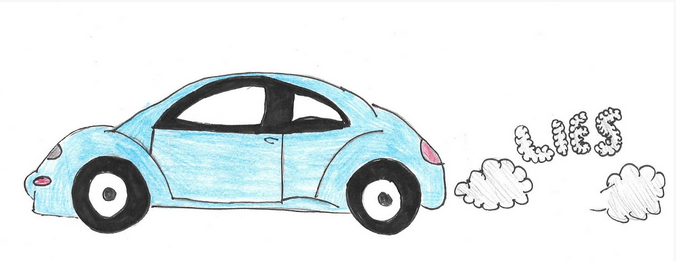Volkswagen scandal surprises students
On Sept. 23, 2015 Volkswagen admitted that over 11 million diesel cars sold worldwide were fitted with an algorithm to fool regulators. These regulators were meant to measure the amount of nitrogen oxide that the cars emitted, but when the cars weren’t in a test situation, the regulators switched off, resulting in emissions of nitrogen oxide up to 40 times the legal limit.
“I was really appalled that a company that has such an opportunity to reduce emissions and be a model for other companies to do the same thing was cheating the system,” Jane Handa ’17, a member of Club Green, said.
While this isn’t the first example of “greenwashing,” –– companies falsely claiming that their products are environmentally friendly –– many students still expressed their surprise over the breaking of the scandal.
“I had always heard that Volkswagen was a reliable car brand,” Maddy Sampath ’16, who owns an unaffected Volkswagen Beetle, said.
Josh Hauser ’16 was surprised too, but not because of his trust in Volkswagen as a company. Rather, he found “how deceptive and effective their strategy was” to be the shocker in the scandal.
“Corporations have been taking advantage of consumers’ ignorance about the environment for decades,” Hauser said. “The average consumer does not understand how the environment works, so they are easily mislead by corporations’ claims of environmentally friendly products.”
He suggests that car companies, rather than ignoring the issue or lying about it, invest their time and money into making cheaper, more environmentally friendly cars, as the current “green” options cost a lot more than the traditional methods.
However, the environment isn’t the only thing to consider for many consumers. They had bought a car, expecting it to have one impact on the environment, only to discover that it could have the exact opposite.
“My parents own a diesel Volkswagen,” Alex Suppan ’16 said. “They predict that someone will file a class-action lawsuit and if so, they will sign onto the petition. Cars that don’t meet the standards shouldn’t be sold.”















































